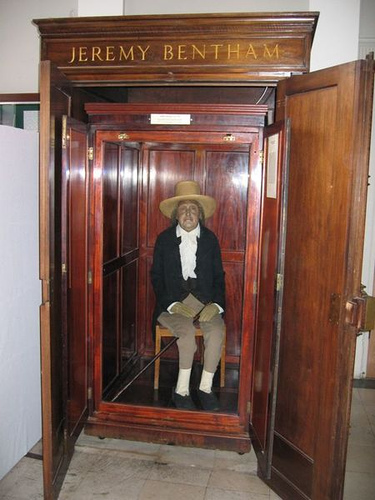
When the English jurist and philosopher Jeremy Bentham died in 1832, his body was preserved and stored in a wooden cabinet at University College London. That was his request. It’s still there — you can see it at the end of the South Cloisters in the college’s main building. Occasionally it’s brought to council meetings, where Bentham is listed as “present but not voting.”
Unfortunately, students kept stealing the head (apparently a disquieting English custom), so the trustees replaced it with a wax one. Bentham’s real head is locked up in an undisclosed location.



